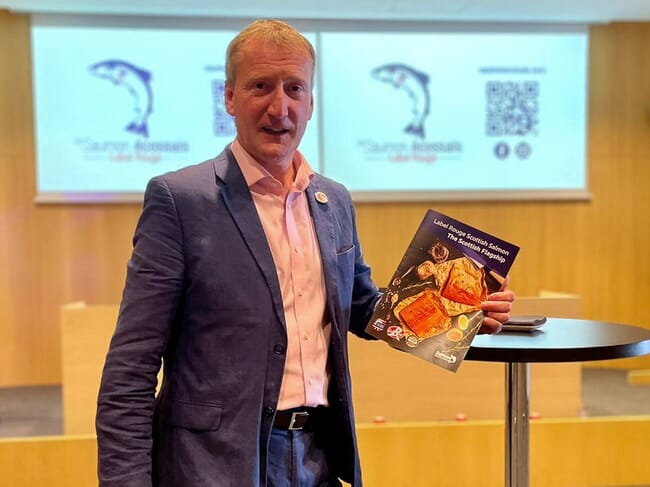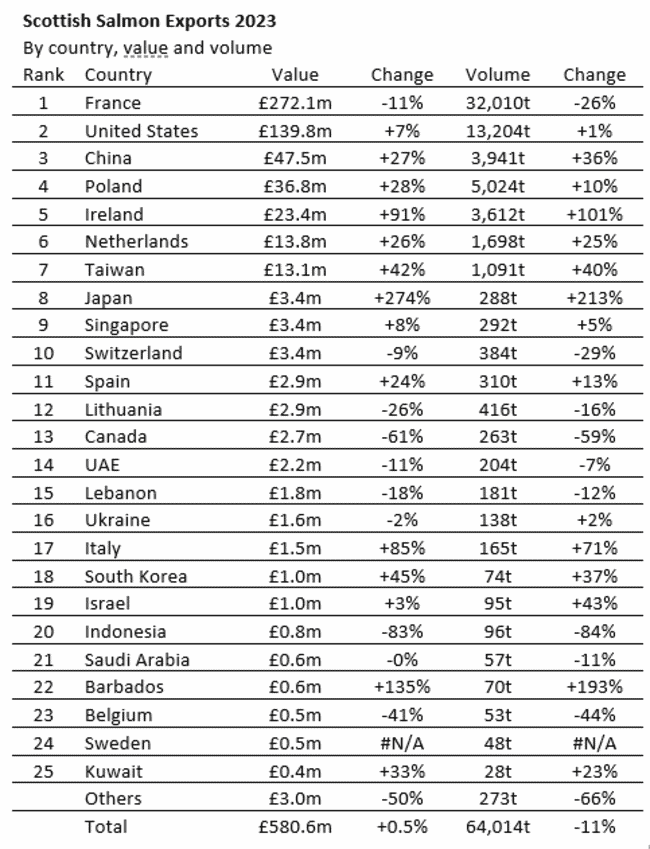
Exports held their values, but volumes were down by 11 percent, dropping from 72,300 to 64,000 tonnes
Annual HMRC figures reveal that the export value of the fish increased by 0.5 per cent, to reach £581 million in the calendar year – the equivalent to £1.6 million every day.
France once again led the global demand, however the US and Asian markets saw sharp growth, with the popularity of Scottish salmon increasing among chefs, restaurants, and consumers.
Scottish salmon exports were far higher than the UK's second largest food export, Cheddar cheese, as well as other popular British products like lamb and beef.
Salmon is also by far the most popular fish among UK shoppers, with domestic sales running at around £1.25 billion a year.

However, Salmon Scotland notes that “while the market demand is soaring, the sector is facing several business challenges. Values rose in 2023 given the high demand, yet export volumes were down 11 per cent compared to the previous year.
“The increased red tape following Brexit continues to add costs and delays for Scottish salmon farmers, while the UK’s recession has dampened the economic environment. And the slow pace of reform of cumbersome regulation in Scotland further adds to the challenges facing farming companies.”
Ahead of this year’s general election, the trade body has urged all political parties to do more to support the country’s most important food sector, setting out a series of manifesto requests.
The organisation has also warned that other nations are looking to increase salmon sales at a faster rate, highlighting how vital it is that Scotland is seen as “open for business”.
Tavish Scott, chief executive of Salmon Scotland, said in a press release: “The demand for nutritious, low carbon Scottish salmon continues to grow at home and abroad. It’s testament to the hard work of salmon farmers in rural Scotland that our fish has been named the UK’s biggest export in 2023 in such challenging economic circumstances.
“The Scottish salmon sector is a bright spot in the Scottish and UK economies, and is ready to invest and create jobs. This is all the more important given the UK is now officially in recession and there is no growth in Scotland, so we need more government support to ensure that Scotland is open for business.
“Other nations are desperate to emulate our success, and it is vital that our sector – which employs 12,500 people and sustains our remotest communities – is supported so that we can deliver sustainable growth for decades to come.”




